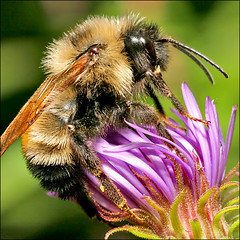
Ken Burns’ tale of the US National Parks reminds me of a heritage that I have, for most of my life, taken for granted. It was in another country, but it is a heritage that I have assumed will always be there.
All of these parks played a part in my childhood, adolescence, and young adult life. It has been nearly 20 years since I spent any time in these parks, but the experience I had there have shaped how I see the world around me. But only now can I really appreciate what these parks mean to us all, in all places.

The parks are a powerful reminder of the transitory effect that man has. Each of them contains some amount of ruins as a visible reminder of man’s failed attempts to exploit and tame the parks. The carcasses of hotels, remains of viaducts, the skeletons of towns litter these refuges.
A part of that failed heritage is something I carry with me, as I am descended from one of the last group permanent residents of an industrial town in a Canadian National Park, as my grandfather lived for a time in the now abandoned town of Bankhead Alberta. My family took me to this place as a child and told me that ‘Grandpa lived here’, a concept I could not understand, as I was in a National Park, wasn’t I? I had no idea of the conflict over what it meant to be a Canadian National Park at the time, as I saw them as the refuges and preserves they had become.

Growing up surrounded by these special places has left with a certain jaded perspective on beauty in the world. Yosemite does not awe the way it does others, as I was raised surrounded by beauty comparable to Yosemite, and perhaps exceeding it. But now I give my unrestrained thanks to those who made the effort to preserve, protect, and conserve these places.
Within the gently protective walls of the Canadian Mountain Parks, I have seen the sublime and the ridiculous. The commercial and the ethereal. Untouched wilderness and unabashed capitalism. And despite protests on both sides, it is clear that they work together, for without the treasure and largesse of one type of visitor, the other would not have a place to go.
Banff is the greatest eyesore amongst those who see the parks as the preserve of untrammeled wilderness. However, if Banff had not existed, the desire and initiative needed to protect the other four parks would not have gained ground. So a commercial pit keeps the wilderness protected, a balance that we can accept in a day of far greater compromises.
So though the idea of a National Park may have been originated in the US, Canada has done well to develop the idea on its own terms. Only now that I am many thousands of miles removed from them, can I appreciate what they have done to to shape me. These memories leave me breathless in the realization of the great privilege I have taken for granted for all of these years.

